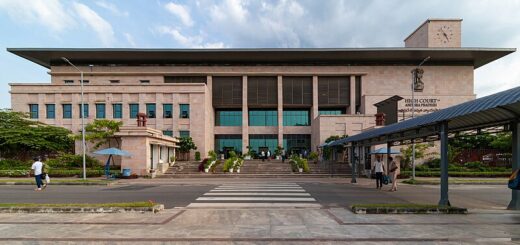The Karnataka High Court stated that the Juvenile Justice Act, not the CrPC, should be used when deciding a bail application for a child, even if the child is being tried as an adult.

The Karnataka High Court explained that if a child facing legal issues is tried as an adult under Section 18(3) of the Juvenile Justice Act of 2015, Section 12 of the same Act still applies. This means that the bail request cannot be handled under the Code of Criminal Procedure. The court was reviewing a bail request from a boy accused of getting his minor sister pregnant. He was charged under various sections of the IPC and the Prevention of Children from Sexual Offences Act, 2012 (POCSO Act) and sought regular bail under Section 439 of the Cr.P.C. Justice S Vishwajith Shetty, in a Single-Judge Bench, stated that the bail application should have been treated as one under Section 12 of the 2015 Act. Not doing so led to a miscarriage of justice and affected the petitioner’s right to freedom.
A 13-year-old girl visited the District Government Hospital and was found to be five months pregnant. When asked, she said her brother was responsible for her pregnancy. Following this, an FIR was filed against him. Since he was a minor when arrested, he was taken to the Juvenile Justice Board and sent to an Observation Home. His request for bail was denied by the Board under Section 12 of the Juvenile Justice (Care and Protection of Children) Act, 2015.
Later, an order was made under Section 18(3) to try him as an adult, even though he was still considered a child under Section 2(12) of the 2015 Act. The case was then sent to a Special Court under the POCSO Act, where another case was opened against him. He applied for regular bail, but it was denied. Upset by this, he went to the High Court. The Amicus for the petitioner argued that even though the order was made to try him as an adult, Section 12 of the Act should apply for his bail, and according to the rules, he should be released on bail.
The HGCP argued that the petitioner committed a serious crime against his minor sister. This act led to the victim becoming pregnant, and she later gave birth. The Bench acknowledged that the petitioner is considered a child under Section 2(12) of the 2015 Act. According to Section 12(1) of the Act, a child brought before the Board should be granted bail, following the conditions of that section. The Bench also noted that the nature of the crime did not suggest that the petitioner would associate with known criminals or face moral, physical, or psychological harm. There was no evidence indicating that the petitioner was at risk of such dangers. The victim and her parents expressed no concerns about the petitioner and appeared in court to support his bail application.
The Bench further clarified that the only reason to deny bail to a child is if there are reasonable grounds to believe that their release could lead to association with known criminals or pose a risk to their safety or justice. Given these circumstances, the Bench concluded that the conditions for denying bail under Section 12(1) did not apply to the petitioner’s case.
The HGCP argued that the petitioner committed a serious crime against his minor sister. This act led to the victim becoming pregnant, and she later gave birth. The Bench acknowledged that the petitioner is considered a child under Section 2(12) of the 2015 Act. According to Section 12(1) of the Act, a child brought before the Board should be granted bail, following the conditions of that section. The Bench also noted that the nature of the crime did not suggest that the petitioner would associate with known criminals or face moral, physical, or psychological harm. There was no evidence indicating that the petitioner was at risk of such dangers. The victim and her parents expressed no concerns about the petitioner and appeared in court to support his bail application.
The Bench further clarified that the only reason to deny bail to a child is if there are reasonable grounds to believe that their release could lead to association with known criminals or pose a risk to their safety or justice. Given these circumstances, the Bench concluded that the conditions for denying bail under Section 12(1) did not apply to the petitioner’s case.
Cause Title: XXX vs. State [Neutral Citation: NC: 2024:KHC:43235]
Appearance:
Petitioner:Senior Advocate Sri Praveen & Amicus Curiae Lethif B
Respondent:Amicus Curiae Lethif B and HGCP M. Diwakar Maddur








